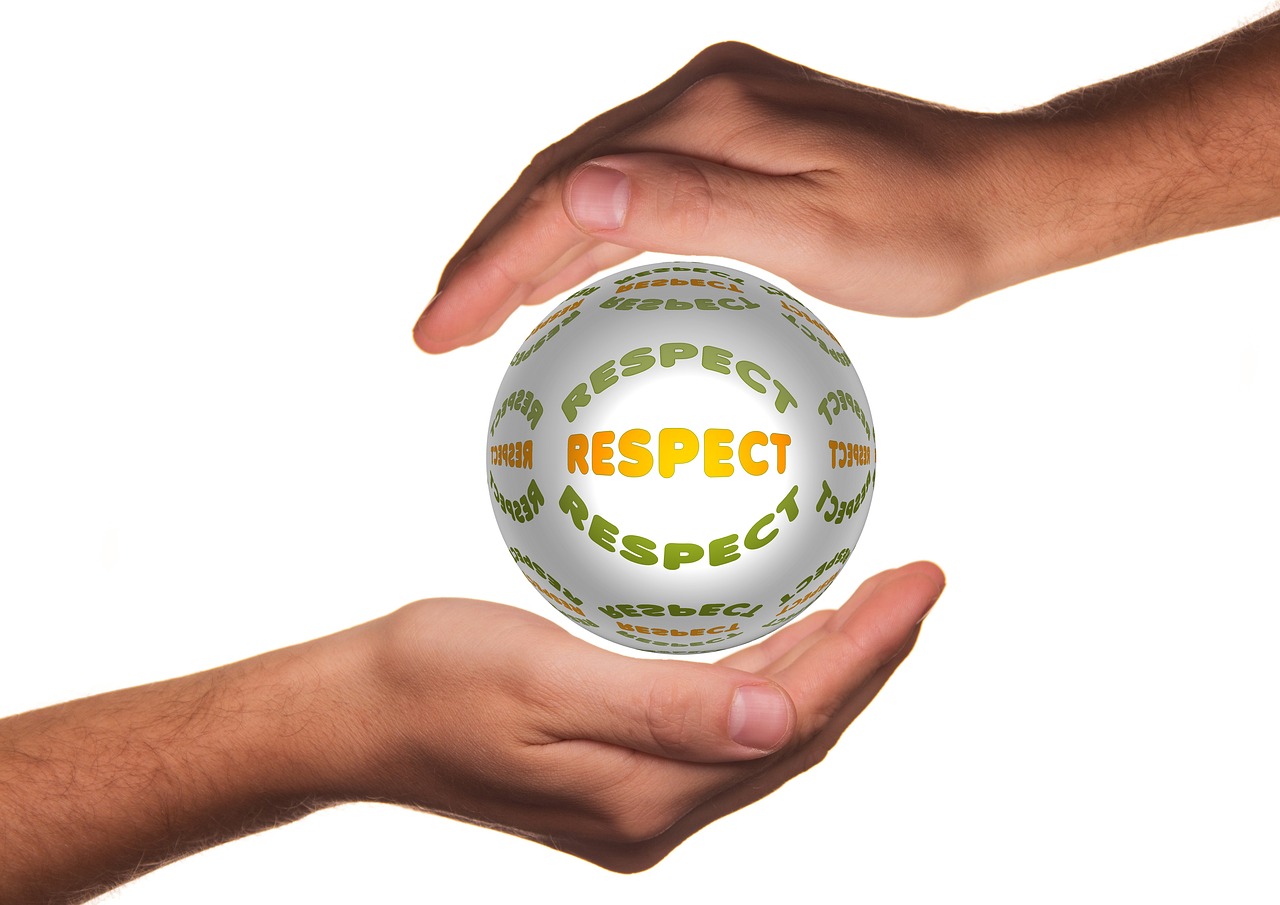28 Eye-opening Moral Standards Examples You Need to Know
Discover a wide range of moral standards examples that shape our ethical decisions. Explore diverse scenarios and examine the values that guide our choices.

Moral standards examples are essential in our daily lives, shaping our character and values. They guide us through the complexities of right and wrong, shaping our character and values. This article examines an array of human behavior and the guiding ideas behind it, putting together a web of ethical models.
By exploring the values that drive us, the virtues we aspire to embody, and the positive impact our actions can have on the world, we aim to inspire and empower individuals to cultivate their moral compass and make choices aligned with their deepest convictions.
Join us on an instructive trip as we celebrate moral integrity's victories, reflect on moral blunders, and uncover the transformational impact of living an ethical life.
The Evolution of Moral Principles Throughout History

The history of moral principles is a captivating narrative that spans centuries and civilizations, reflecting the evolution of human thought and values. From ancient philosophical traditions to modern ethical theories, the development of principles and morals has shaped the way we perceive and navigate the world.
Moral philosophy was established by ancient civilizations including those in ancient Greece and China. Thinkers like Socrates, Plato, and Aristotle contemplated questions of virtue, justice, and the good life. Their teachings emphasized the cultivation of moral character and the pursuit of a harmonious society.
Religious traditions have also played a significant role in shaping moral principles. Just a few instances of how religious writings have offered moral advice for their adherents are the Ten Commandments in Judaism, the sayings of the Buddha in the Buddhist faith, and the ethical teachings of Jesus in Christianity.
Scholars like Immanuel Kant and John Stuart Mill worked to develop moral rules that relied on rationality and usefulness throughout the Golden Age of Reason in the 17th and 18th centuries. Kant emphasized the importance of moral duty and universal moral laws, while Mill focused on the consequences of actions and the pursuit of happiness.
With the advent of social concepts like consequentialism, deontology, and virtuous ethics in the 20th century, ethical thought acquired fresh perspectives. Consequentialism focuses on the outcomes or consequences of actions, deontology emphasizes adherence to moral rules and duties, and virtue ethics centers around the development of virtuous character traits.
As societies have become more interconnected and diverse, moral principles have also evolved to address new ethical challenges. Debates on how moral concepts should be implemented in a globalized society have been sparked by the rise of concerns like equality for all, ecological ethics, and social equity.
The exploration of ethical values is still an active area of research today, with intellectuals, academics, and common people all having discussions on what it takes to lead a decent life. The history of morals and principles reminds us that our understanding of right and wrong is not fixed, but rather an ongoing exploration that requires thoughtful reflection and open dialogue.
By studying the history of moral principles, we gain insights into the diverse perspectives and ethical frameworks that have shaped our moral landscape. It challenges society's standards, confronts our ideals, and encourages us to work towards a more empathetic and fair world
Different Types of Moral Principles in Creating a Just Society
1. Deontological Principles

It emphasizes adherence to moral duties, rules, or principles. For example, the categorical imperative proposed by Immanuel Kant suggests that individuals should act according to principles that could be universally applied without contradiction.
2. Consequentialist Principles

Consequentialist ethics, also known as teleological ethics, assesses the morality of actions based on their outcomes or consequences. Utilitarianism, a consequentialist theory, posits that actions should maximize overall happiness or utility for the greatest number of people.
3. Virtue-based Principles

Virtue ethics centers on cultivating virtuous character traits. It places a strong emphasis on fostering moral qualities like fairness, bravery, and kindness. Virtue ethics focuses on becoming a good person rather than solely focusing on specific actions or consequences.
4. Rights-based Principles

Rights-based ethics emphasize the inherent rights and dignity of individuals. It contends that particular rights, like the privilege of liberty and secrecy, need to be cherished and safeguarded. The concept of human rights is often foundational to rights-based principles.
5. Duty-based Principles

Duty-based ethics revolves around fulfilling moral obligations and responsibilities. It highlights the importance of honoring duties or roles in different contexts, such as professional, familial, or societal obligations.
6. Relativistic Principles

Relativistic ethics posits that good morals and judgments are subjective and vary across cultures, individuals, or contexts. There isn't a single, unchanging moral truth, and such standards might vary depending on societal, historical, or individual variables.
7. Pragmatic Principles

Pragmatic ethics focuses on practical considerations and the context-specific nature of ethical decision-making. It recognizes the importance of balancing various moral principles and taking into account real-world complexities and consequences.
28 Moral Standard Examples: To Live by
1. Honesty

Being truthful and open-minded in one's behavior and discussions are referred to as being honest. It involves being sincere and genuine in dealing with others, and not intentionally misleading or deceiving them. Honesty fosters trust and credibility in relationships, and it demonstrates a commitment to ethical conduct.
2. Integrity
Integrity is the adherence to moral and ethical principles, even in challenging circumstances. It involves consistently acting by one's values and beliefs, regardless of external pressures or temptations. People with integrity exhibit honesty, dependability, and an intense awareness of basic morality in both their personal and professional lives.
3. Compassion

Empathy and care for the welfare of others are two characteristics of compassion. A compassionate culture promotes deeds of empathy, charity, and assistance to those in need.
4. Respect

Respect entails treating others with dignity, fairness, and courtesy. It entails appreciating each person for who they truly are, regardless of their upbringing, beliefs, or differences. Respecting others means listening to their perspectives, valuing their autonomy, and refraining from actions that demean or harm them. It fosters an atmosphere of diversity, teamwork, and understanding.
5. Responsibility

Responsibility refers to taking ownership of one's actions and obligations. It involves being accountable for one's choices, behaviors, and their consequences. Individual growth, reliability, and the creation of a trustworthy environment all start with responsibility.
6. Fairness

Fairness refers to ensuring equal treatment and opportunities for all individuals. It involves acting impartially, without favoritism or discrimination, and considering the needs and rights of everyone involved. Fairness encourages equality, justice, and the acknowledgment of everyone's inherent value and worth, irrespective of their upbringing or situations.
7. Forgiveness

Remorse must be released and those who have wronged us must be granted forgiveness to be forgiven. It is a process of releasing negative emotions and choosing to move forward without holding grudges or seeking revenge. On a personal and social level, forgiveness enables healing, reunification, and the repair of connections.
8. Kindness

Kindness is an example of a moral principle that shows the quality of consideration, generosity, and assistance to others. It involves acts of compassion, empathy, and goodwill. Kindness manifests in small gestures of thoughtfulness and larger acts of selflessness, aiming to bring joy, comfort, and support to those in need. It creates a positive and harmonious social environment.
9. Loyalty

Loyalty entails demonstrating devotion and commitment to individuals, groups, or causes. It involves standing by someone or something through thick and thin, remaining steadfast in support and allegiance.
10. Gratitude

The act of being grateful is to convey gratitude and thanks for what one has been given. It involves acknowledging the kindness, support, and blessings bestowed upon us, whether from others or from life itself. Positivity, humility, and an understanding of how linked everyone and everything is are all fostered through gratitude.
11. Patience

Patience involves exhibiting self-control and endurance in difficult situations. It is the capacity to stay serene, patient, and cool in the face of difficulties, setbacks, or delays. Patience enables rational decision-making, compassion for other people, and the capacity to overcome challenges while maintaining inner peace.
12. Courage

Courage is the virtue of facing fears and challenges with bravery and determination. It entails acting in the face of opposition, standing up for what is right, and tackling challenging circumstances or decisions with assurance.
13. Humility
Understanding and accepting one's shortcomings and limits is the definition of humility. It involves a modest and honest assessment of oneself, avoiding excessive pride or arrogance. Humility allows for openness to learning from others, accepting constructive feedback, and treating others with respect and equality, recognizing the inherent worth of every individual.
14. Justice

Justice is the moral principle of promoting fairness, equality, and righteousness in societal systems. It entails maintaining and upholding the rights and decency of every person, regardless of their origin or position in society. Justice includes combating discrimination, advocating for equal opportunities, and ensuring that laws and institutions are just and impartial.
15. Generosity

Generosity is the act of sharing resources, time, and talents with others. It involves a willingness to give freely, without expecting anything in return. Generosity can take various forms, such as helping those in need, supporting charitable causes, or simply offering a listening ear or kind gestures to those around us. It fosters communal spirit, understanding, and kindness.
16. Empathy

It entails putting oneself in another person's situation, being aware of their feelings, and reacting with kindness and consideration. Empathy allows for deeper connections, effective communication, and the cultivation of meaningful relationships based on understanding and support.
17. Tolerance

Tolerance is accepting and appreciating those whose perspectives, opinions, and lifestyles differ from our own. It entails acknowledging and valuing each person's intrinsic value and dignity, regardless of their past experiences or viewpoints. It encourages inclusion, mind-opening, and the capacity to cohabit peacefully in a multiracial society.
18. Perseverance

The trait of persevering in the face of challenges and misfortune is perseverance. It involves maintaining effort, determination, and resilience despite challenges, setbacks, or failures. Persistent individuals may maintain their focus on their objectives, learn from setbacks, and have the fortitude to go through challenging situations, which promotes achievement and personal progress.
19. Self-discipline

It entails the capacity to control one's emotions, postpone pleasure, and stick to a set of values or objectives. This helps people to make deliberate decisions, withstand temptations, and keep their attention on long-term goals, which promotes success and personal development.
20. Graciousness

Graciousness involves showing kindness, elegance, and good manners in interactions with others. This moral standard example entails treating others with respect, consideration, and appreciation. Graciousness manifests in being polite, showing gratitude, and engaging in acts of kindness and generosity. It creates a positive and harmonious social atmosphere, fostering goodwill and enhancing interpersonal relationships.
21. Trustworthiness

Trustworthiness refers to being reliable, dependable, and keeping one's promises. It involves demonstrating integrity, honesty, and consistency in words and actions. Trustworthy individuals are seen as credible and dependable, and they inspire confidence in others. Trustworthiness forms the foundation of strong relationships and fosters a sense of security and reliability in personal and professional interactions.
22. Wisdom

It involves the ability to analyze situations critically, consider different perspectives, and make informed choices that align with ethical principles. Wisdom incorporates lessons learned from the past and enables individuals to navigate complexities with discernment and clarity.
23. Environmental Consciousness
Environmental consciousness refers to acting responsibly to protect and preserve the natural world. It involves recognizing the interconnectedness of all living beings and the importance of sustainable practices. Reducing waste, preserving resources, assisting conservation efforts, and making decisions that minimize environmental harm all contribute to the well-being of future generations and are examples of environmental consciousness.
24. Non-violence

The philosophy of non-violence forbids inflicting physical or mental damage on others. It involves seeking peaceful resolutions, promoting dialogue, and advocating for understanding and compassion instead of resorting to aggression or violence.
25. Moderation
Moderation involves avoiding excess and maintaining balance in one's actions and behaviors. It is about exercising restraint and self-control, recognizing when to indulge and when to exercise discipline. Moderation promotes harmony, health, and well-being by preventing extremes and finding a balanced approach to life's challenges and pleasures.
26. Equality

Defending equal opportunities and privileges for all people, regardless of their color, age, faith, or other traits, is what it means to be an advocate for equality. It is the belief in the inherent worth and dignity of every person, and the commitment to dismantling systemic barriers and biases that prevent equal treatment. Fairness, inclusion, and the understanding that every person deserves an equal opportunity to develop and prosper are all promoted by equality.
27. Open-mindedness

It involves setting aside preconceived notions or biases and being open to new information and alternative viewpoints. Open-mindedness encourages curiosity, intellectual growth, and constructive dialogue. It develops empathy, comprehension, and the capacity to handle a variety of challenging circumstances with dignity and justice.
28. Personal Growth

Personal growth encompasses various aspects, including intellectual, emotional, and spiritual growth. It involves setting goals, acquiring new skills, embracing challenges, and expanding one's horizons. Greater self-awareness, fulfillment, and the capacity to make a good difference for others and the world all result from personal growth.
Impact of Moral Principles: Moral Codes to Live by

Moral values have a significant influence on people, relationships, and society at large. Here are some of the key impacts of embracing and practicing morals and principles:
1. Personal Development

Embracing moral principles promotes personal growth and development. It supports people in developing characteristics like accountability, integrity, truthfulness, empathy, and selflessness, which results in improved self-awareness, self-esteem, and a feeling of direction. Moral principles guide individuals in making ethical choices and acting in alignment with their values, contributing to their overall well-being and fulfillment.
2. Positive Relationships

Moral principles form the foundation of healthy and positive relationships. In their relationships with others, people who preserve values like respect, empathy, and justice build trust, understanding, and collaboration. It encourages effective communication, conflict resolution, and the development of deep and meaningful connections, enhancing the quality of relationships in personal, professional, and community settings.
3. Social Cohesion

Moral principles play a crucial role in shaping the fabric of society. Justice, equality, and compassion are values that people and communities should uphold because they promote social peace and cohesiveness. Moral principles serve as the foundation for societal norms, laws, and institutions, assuring equity, the defense of rights, and a common dedication to the welfare of all people in society. This encourages the development of a more equitable society where everyone may prosper.
4. Ethical Decision-making
The framework provided by moral principles helps people make moral decisions. People who uphold moral standards think about how their decisions will affect other people and the greater good when presented with choices and moral quandaries. This encourages moral conduct and leads to a more just and ethical society.
5. Impact on Future Generations

Embracing and passing on moral principles to future generations has a lasting impact. When individuals model and teach moral principles to children and young people, it helps shape their character, values, and behaviors.
The Importance of Ethics in Today's World: Tips to Cultivate Moral Values

Developing examples of good moral principles is a lifelong process that involves self-reflection, learning, and growth. Here are some tips to help you in developing and strengthening your moral principles:
1. Reflect on Your Values

Take time to reflect on what values are important to you. Consider what principles you want to guide your actions and decisions. Reflect on the qualities and virtues you admire in others and aspire to embody.
2. Seek Knowledge And Wisdom

Educate yourself on different ethical theories, philosophical perspectives, and moral frameworks. Engage in reading books, articles, and discussions that explore moral and ethical concepts.
3. Consider Consequences And Impacts
When making decisions, consider the potential consequences and impacts on others. Reflect on how your actions align with your moral principles and how they may affect the well-being and rights of others. Take a broader perspective and consider the long-term consequences as well.
4. Practice Empathy And Perspective-taking

Cultivate empathy by seeking to understand and relate to the experiences and emotions of others. Put yourself in their shoes and consider how your actions may impact them. Developing empathy can help you make decisions that prioritize fairness, compassion, and respect for others.
5. Act with Integrity

Strive to align your actions with your moral principles. Uphold your values even when faced with challenges or temptations. This consistency builds trust and reinforces your commitment to your moral principles.
6. Reflect on Your Actions And Learn from Mistakes

Regularly reflect on your actions and decisions. Consider whether they align with your moral principles and whether there are areas for improvement. Acknowledge and learn from your mistakes, and make a commitment to grow and make better choices in the future.
7. Engage in Ethical Discussions And Seek Diverse Perspectives
Engage in conversations and discussions on ethical topics with others. Seek out diverse perspectives and opinions to challenge your thinking and broaden your understanding. Engaging in ethical discussions can help you refine and clarify your moral principles.
8. Be Open to Personal Growth
Embrace personal growth and development as an ongoing process. Continuously learn, reflect, and adapt your moral principles as you gain new insights and experiences. Be open to challenging and evolving your beliefs as you deepen your understanding of ethical issues.
9. Lead by Example

Live out your moral principles in your daily life and interactions with others. Be a role model by demonstrating kindness, fairness, honesty, and other virtues. Your actions can inspire and influence others to develop their moral principles.
10. Practice Self-care And Seek Support

Developing good moral principles requires emotional and mental well-being. Seek support from trusted friends, mentors, or professionals when facing moral dilemmas or challenges.
Remember that developing good moral principles is a lifelong journey. Be patient with yourself and embrace the opportunities for growth and learning along the way.
The Downside of Sticking to One's Moral Principles at All Times: Bad Moral Examples

While moral principles are typically seen as good and helpful, it's crucial to recognize that there may be difficulties or problems in applying them. Here are some common moral concerns to watch out for:
1. Moral Relativism
Different individuals and cultures may have varying interpretations of moral principles. This can lead to conflicts and disagreements when there is a clash of moral values and perspectives. Finding a consensus among all moral people on what is morally proper or wrong can be difficult due to the subjective nature of moral standards.
2. Moral Dilemmas

Moral dilemmas are situations in which two moral ideals conflict with one another. People may find it difficult to choose the right course of action when two or more moral ideals clash. Such decisions must be made after thorough thought and assessment of the unique context and circumstances.
3. Hypocrisy

While individuals may espouse certain moral principles, they may not always consistently live up to them. Hypocrisy can undermine the credibility of moral principles and create distrust. Individuals need to strive for alignment between their stated moral principles and their actions.
4. Cultural Bias

Moral principles can be influenced by cultural norms and biases. What is considered morally acceptable or unacceptable can vary across different cultures and societies. It is important to critically examine the cultural context and biases that may shape moral principles to ensure a broader perspective.
5. Moral Judgment And Exclusion

Strict adherence to moral principles can sometimes lead to judgmental attitudes and the exclusion of those who do not conform to basic moral standards. This can create divisions, prejudice, and discrimination.
6. Moral Fatigue
Constantly trying to live up to moral principles and making ethical decisions can be mentally and emotionally taxing. The weight of moral responsibility can lead to exhaustion or a sense of overwhelm.
7. Rigidity And Inflexibility

Moral principles, if taken to an extreme, can become rigid and inflexible. This can limit adaptability and hinder open-mindedness to new moral ideas or changing circumstances.
Conclusion
Moral standard examples guide our actions, relationships, and character, promoting harmony, fairness, and compassion. By embracing honesty, integrity, compassion, respect, and responsibility, we can make ethical decisions, navigate challenging situations, and contribute to a more just and inclusive society. These principles encourage personal growth, positive relationships, and social cohesion, fostering empathy and understanding. By aligning our actions with ethics, we enhance our well-being, and character, and contribute to the betterment of communities and the world.
ALSO READ: 5 Toxic effects of South Korea?s Beauty Standards





 JOIN OUR WHATSAPP CHANNEL
JOIN OUR WHATSAPP CHANNEL










































































